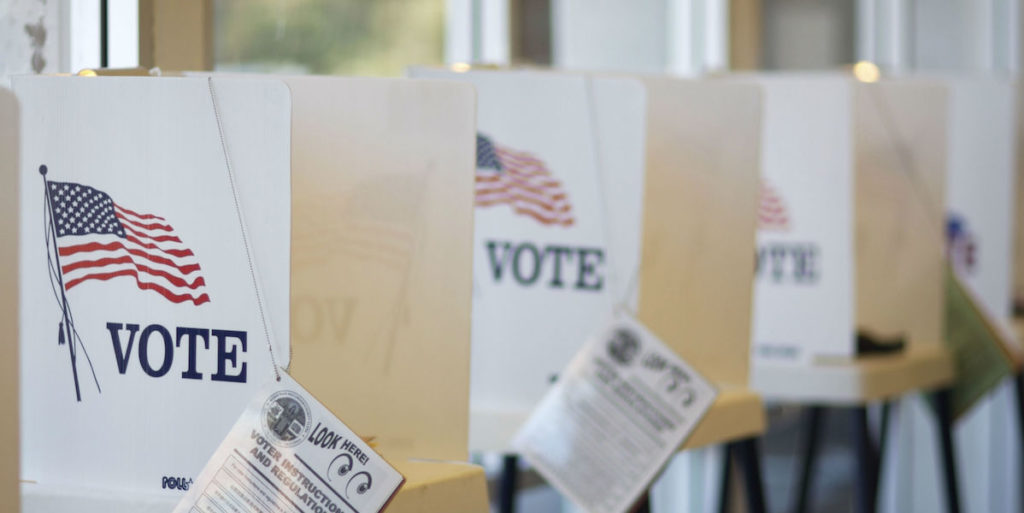The big list of voting reforms under discussion in Harrisburg has solidified into a ![]()
Jonathan Lai reports that Governor Tom Wolf hammered out the deal with Republican legislative leaders, and if enacted this fall, the changes would go into effect for the 2020 election. But Wolf’s approach to the negotiations upset legislative Democrats, who were angry about being left out of the discussion, and the bill contains a few provisions that have made some Democrats determined to sink the whole package. That would be a mistake.
Before getting into the Democrats’ issues with the legislation, here’s the Inquirer’s summary of what’s in the bill:
The changes include:
• Allowing any voter to request an absentee ballot and vote by mail without providing a reason, as they currently must.
• Creating a permanent mail-in voter list.
• Reducing the voter registration deadline from 30 to 15 days before an election.
• Extending the tight absentee-ballot deadlines that currently ensnare thousands of voters every year.
• Funding $90 million for a statewide upgrade to more-secure voting machines.
• Eliminating the straight-party ticket voting option that allows voters to select every candidate from a party with a single choice.
The bill, SB421, was amended and passed out of committee Tuesday. To become law, the full House and Senate must pass it and Wolf must sign it. As written, the changes would take effect in time for the 2020 presidential primary election.
The deal would apparently also include new money for the Census, and educational funding to inform voters about the end of straight-ticket voting. And the absentee ballot deadline would be extended to 8pm on election night. Currently election officials need to have absentee ballots in-hand by 5pm on the Friday before Election Day. Pennsylvania voters could also request a mail-in ballot 50 days before an election.
Legislative Democrats are upset about the move to eliminate the straight-party ticket voting option, worrying that too many Democratic voters might not always make it all the way down to the bottom of the ballot, hurting the party’s judicial nominees and other local candidates. This take unfortunately perpetuates a pretty gross stereotype about Democratic base voters though—and in particular, Black voters with lower educational attainment—and it may also be too pessimistic about the ability of campaigns to educate voters about candidates and what’s at stake in elections.
And on the other side of the deal, moving toward no-excuse vote-by-mail and cutting in half the period between the voter registration deadline and Election Day would together represent a huge win for voting access. And it would likely help Democrats much more than eliminating straight-ticket voting would harm them.
These are the two classes of voting reforms with the biggest proven pay-offs in terms of increasing voter turnout, particularly among groups that tend to vote for Democrats. According to one analysis by Charlotte Hill and Jacob Grumbach, if Michigan had had same-day registration in 2016, Hillary Clinton would likely have won the state. Once you have no-excuse mail-in voting and same-day registration in place, you’ve substantially reduced most of the major hurdles that dissuade people from voting.
It’s also significant that mail-voters will be added to a vote-by-mail list and automatically receive a mail-in ballot before each election. There are some promising ways to expand on both of these changes in future rounds of legislation. In the future, perhaps everyone could receive a mail-in ballot instead of just people who request it. Perhaps the postage could be pre-paid to eliminate any friction from the extra step of having to buy stamps. The 15-day gap between the voter registration deadline and Election Day could be eliminated, and same-day registration implemented, which was the political path that led to same-day voter registration in California.
The Commissioners are already playing this game on the lowest difficulty setting, as Pennsylvania’s voter registration deadline is already one of the earliest in the nation. The fact that they even screw this up with a 30-day window tells you right up front there’s something wrong with their process, their staffing, their funding, or any number of things.
One troubling piece of news is that City Commissioner Lisa Deeley is credibly rumored to be lobbying Philadelphia state delegation members against the bill, not on the basis of straight-ticket voting, but because of the move from a 30-day gap to a 15-day gap for voter registrations.
Commissioner Deeley is reportedly telling lawmakers that the Commissioners’
Keep in mind, the Commissioners are already playing this game on the lowest difficulty setting, as Pennsylvania’s voter registration deadline is already one of the earliest in the nation. We’re one of just 16 states with a voter registration deadline that far out from Election Day. The fact that they even screw this up with a 30-day window tells you right up front there’s something wrong with their process, their staffing, their funding or any number of things. The point is that voters shouldn’t pay the penalty of having their voting access reduced just because the commissioners aren’t currently set up to get this done.
Jon Geeting is the director of engagement at Philadelphia 3.0, a political action committee that supports efforts to reform and modernize City Hall. This is part of a series of articles running in both The Citizen and 3.0’s blog.

